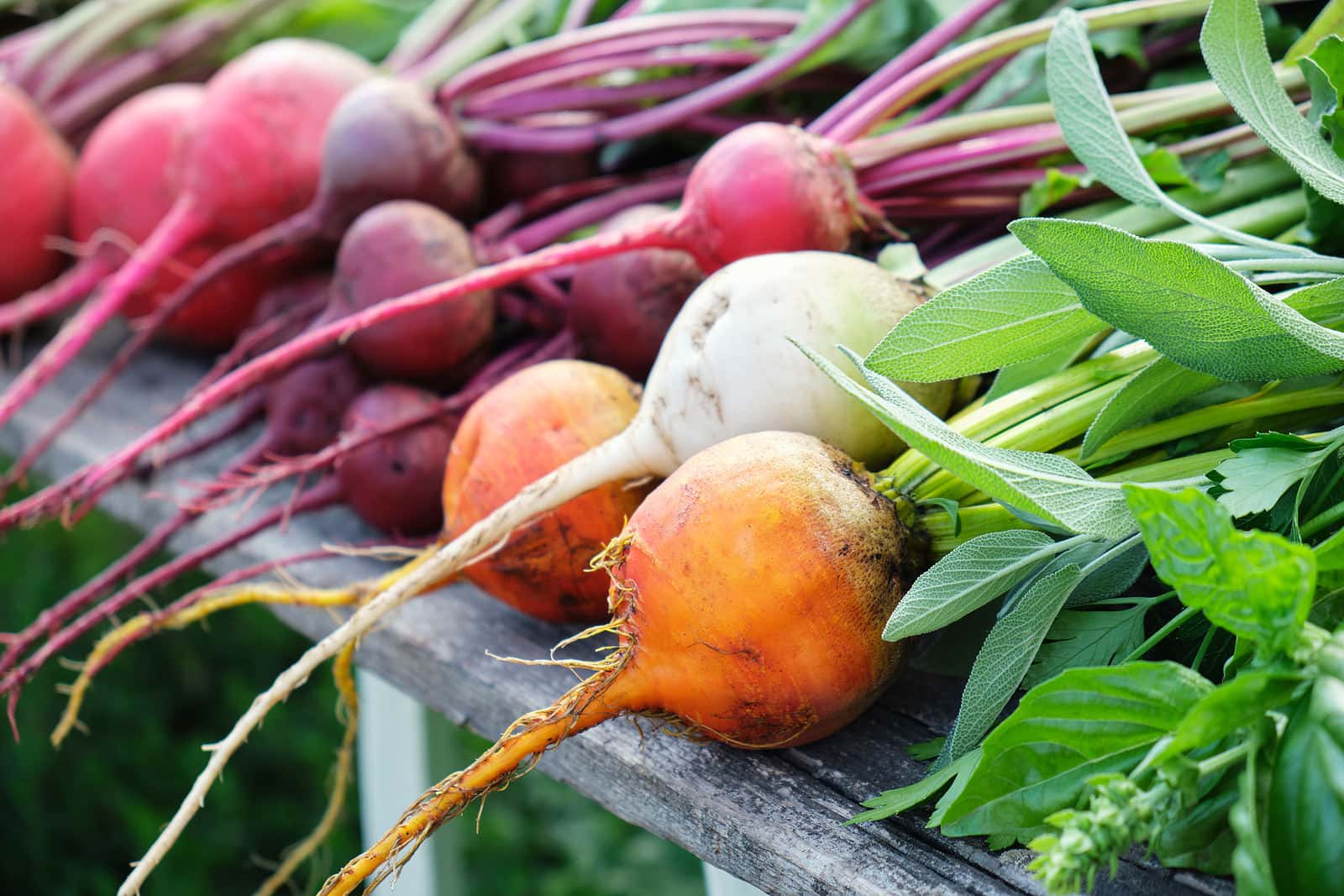
Do you like beets? We do, but we’ve heard that a lot of people object to their earthy flavor. On the other hand, research demonstrates that people who eat beets regularly may have less trouble with high blood pressure (Advances in Nutrition, Nov. 15, 2017) and more endurance (Critical Reviews in Food Science and Nutrition, 2021). Might eating beets benefit eyesight also? One reader thinks so.
Do Beets Benefit Eyesight?
Q. You’ve written about beets for blood pressure. In my experience, beets can help eyesight.
Several years ago, a friend gave me a grocery bag of home-grown beets – perhaps 10 of them, maybe 6 pounds worth. I had never cooked or eaten beets in my entire life, but I washed the dirt off and boiled them up. Over the next week, I ate them all. Nearly immediately, I noticed that my distance vision improved tremendously. It had gradually become blurry. My optometrist confirmed the positive change in my eyesight.
This effect lasted for months before it faded. I wonder if the nitric oxide had a positive effect on blood vessels in the eyes, or if there’s some other factor.
I bought beet powder after the effects of eating all of those beets wore off. However, it didn’t seem to help my eyesight.
Later I read that beets can absorb heavy metals from the soil, so I decided to only buy organic beets and not use beet powder. I boil them in water and use the cooking water for my oatmeal. The uncooked leaves and stems get stashed in the freezer for future use in soup.
A Word of Caution:
Readers should be aware that eating beets can immediately color the urine red and can also create red streaks in bowel movements. I wouldn’t want anyone to erroneously think they have bladder infections or cancers!
A. Thanks for alerting us to the possibility that beets benefit eyesight. Beet greens are rich in lutein, a nutrient that has been shown to be helpful for vision.
Beet roots have been shown to boost nitric oxide levels, which improve circulation. A review in the journal Healthcare (Feb. 2022) suggests that people who play online sports can benefit from both beets and lutein. That is partly due to the cognitive effects and partly to the vision help afforded by lutein.
We especially appreciate your word to the wise. Pink urine can be a bit alarming if you are not expecting it!
Can Beets Protect the Heart?
Although research has not shown that beets benefit eyesight, many studies have demonstrated that they are good for circulation. Several years ago, Canadian scientists demonstrated that nitrate-rich beet juice affects the sympathetic nervous system that controls heart rate and blood pressure (American Journal of Physiology-Heart and Circulatory Physiology, July 2017). The Canadians use the British terminology beetroot juice.
How Does Beetroot Juice Affect the Nervous System?
In the trial, healthy young people drank either high-nitrate beet juice or a look-alike, taste-alike placebo. The scientists measured sympathetic nerve activity in their muscles during both activity and rest periods. It was lower after the volunteers had drunk beetroot juice than after they had consumed the placebo beverage.
The authors concluded that beetroot juice lowers the activity of the sympathetic nervous system, which in turn leads to cardiovascular benefits. Although these volunteers were healthy and young, the investigators predict that beet juice could someday benefit people with heart disease.
Beets and Beet Juice for Protecting the Heart During Chemotherapy:
A previous study identified beet juice as a possible antidote to serious side effects of an anti-cancer drug called doxorubicin. This chemotherapy has one big drawback. It can be toxic to the heart. When patients have to take large doses for long periods they risk damaging their heart muscles permanently.
Scientists at Virginia Commonwealth University found that nitrates that occur naturally in foods such as spinach, beets and leafy green vegetables may protect the heart muscle from doxorubicin injury. The research was carried out in mice and will need to be repeated in human studies (Zhu et al, Journal of the American College of Cardiology, May 2011). Until such studies are completed, however, cancer patients taking doxorubicin may wish to drink beetroot juice and eat lots of spinach and other dark green leafy vegetables as an inexpensive and potentially helpful adjunct to their chemotherapy.
Citations
- Bahadoran Z et al, "The nitrate-independent blood pressure-lowering effect of beetroot juice: A systematic review and meta-analysis." Advances in Nutrition, Nov. 15, 2017. DOI: 10.3945/an.117.016717
- Zamani H et al, "The benefits and risks of beetroot juice consumption: a systematic review." Critical Reviews in Food Science and Nutrition, 2021. DOI: 10.1080/10408398.2020.1746629
- Szot M et al, "Can nutrients and dietary supplements p[otentially improve cognitive performance also in esports?" Healthcare, Feb. 2022. doi: 10.3390/healthcare10020186
- Notay K et al, "Acute beetroot juice supplementation on sympathetic nerve activity: a randomized, double-blind, placebo-controlled proof-of-concept study." American Journal of Physiology-Heart and Circulatory Physiology, July 2017. DOI: 10.1152/ajpheart.00163.2017
- Zhu S-G et al, "Dietary Nitrate Supplementation Protects Against Doxorubicin-Induced Cardiomyopathy by Improving Mitochondrial Function." Journal of the American College of Cardiology, May 2011. DOI: 10.1016/j.jacc.2011.01.024

